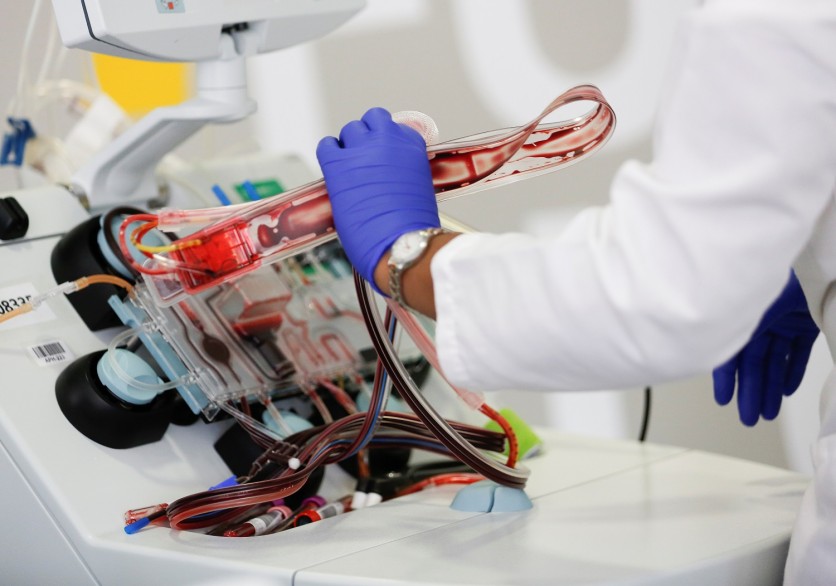Over 6,000 coronavirus patients in the United Kingdom have volunteered in a drug trial managed by the University of Oxford, hoping to find the right treatment for coronavirus.
Called The Randomised Evaluation of COV-id19 thERapY (RECOVERY) trial, this is currently the world's biggest single trial of drugs to treat COVID-19.
With the support of Chief Medical Officer Professor Chris Whitty, the university has pleaded doctors nationwide to enroll patients in the voluntary trial.
Since then, patients have signed up for the trial in over 160 NHS facilities around the country, but experts still hope for more volunteers.
While there is no minimum number of people required for the trial to be successful, health experts said, the more participants the trial has, the greater possibility for the team to find answers.
In this trial, each participant will receive one of five drugs currently on the market, including the antimalarial drug hydroxychloroquine promoted by Donald Trump.
The other drugs being looked at as a treatment for COVID-19 include the HIV-treatment Kaletra, which is the combination of Lopinavir and Ritonavir; low-dose steroid Dexamethasone, which reduces inflammation; azithromycin, a commonly used antibiotic with antiviral properties; and recently, the steroid Tocilizumab has been added to the trial.
Similar trials are already set up worldwide, but with lesser participants than the U.K. program.

READ ALSO : COVID-19 Update: Coronavirus Vaccine Makers Ask Government's Help to Make Millions of Doses by September
Newest on the trial menu
Aside from the other first four promising coronavirus cures, Tocilizumab is the latest drug added to the Recovery trial.
With about 6,000 NHS patients volunteered in five weeks, the Oxford University-run trial is now the largest study on using existing medications to treat the incurable virus.
In an interview with The Times, Martin Landray, a professor of medicine and epidemiology at the Nuffield Department of Population Health at Oxford, said that from having a nasty viral infection, the situation might worsen to requiring ventilation because of the "hyper-inflammatory response."
'There are good grounds for believing that if we can block that, then this might reduce the risk of going on to ventilation or dying," said Landray.
Tocilizumab reduces levels of IL-6 protein in the body, which is excessive in people with rheumatoid arthritis and other autoimmune conditions.
Too much IL-6 can cause inflammation and damage. However, Tocilizumab blocks these effects, so it has become a regular for treating inflammatory disease. It is now believed to prevent an overreaction of the immune system, as seen in some coronavirus patients.
Called a 'cytokine storm', the body's immune response can go into overdrive and produce a flood of inflammatory molecules.
It releases these molecules into the lungs where the virus has burrowed deep, clogging up the tiny air sacs in the organs and making it hard to breathe.
The overreaction of the immune system is considered a major factor behind catastrophic organ failure and death in some coronavirus patients.
The Recovery trial will also look at the Donald Trump-touted hydroxychloroquine, the HIV drug lopinavir-ritonavir, the steroid dexamethasone and azithromycin, an antibiotic that may kill off viruses.
Medics have not put a number on the number of people the trial needs to be successful but has said the more participants the trial has, the more likely it will be the team will find answers.
Meanwhile, the NHS is also asking COVID-19 survivors to donate blood to try-out the convalescent plasma therapy on coronavirus patients. It is deemed helpful as people who survived from COVID-19 have antibodies in their blood, which can fight the virus on another patient who is currently ill with the virus.
However, the NHS Blood and Transplant says it is still waiting on approval to try the therapy, which is already being tested worldwide. Thus, British scientists fear the UK has been too slow to adopt it.
ⓒ 2025 TECHTIMES.com All rights reserved. Do not reproduce without permission.




